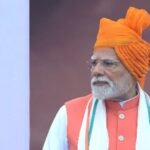Tamil Nadu Chief Minister M K Stalin used his Independence Day address Friday to deliver one of his sharpest public critiques yet of the Union government, accusing it of “snatching the rights of the State governments” and urging constitutional action to restore powers and fiscal autonomy to the states.
Hours later, his government announced it would boycott Governor R N Ravi’s customary “At Home” reception, citing “anti–Tamil Nadu acts” and escalating an already fraught standoff with Raj Bhavan.
Speaking at Fort St. George after hoisting the national flag, Stalin said: “State governments are forced to depend on the Union government due to the discrimination in devolution of funds and in welfare programmes through central Acts and court judgments.”
Finding a constitutional remedy, he said, was “the only solution to this issue” and would “help in getting due authority and devolution of funds from the Union government”. The present practice of “moving the courts to get the funds due to the state was not in line with the federal principles of the country,” he added.
“This would affect the state’s development. It would also affect India’s integration,” Stalin said. “While the states increasingly needed more power, the rights of the state governments were being snatched in key sectors, such as education, and medicine, among others.”
Stalin said that “through Union laws, court judgments, and discriminatory treatment in financial allocations and schemes, the states are being pushed into dependence on the Union government.” The “only solution to this situation,” he told the gathering, “is to take constitutional measures to restore the states’ rightful share in the division of powers and finances. It is high time for such initiatives”.
This is believed to be the first time that Stalin has used his Independence Day speech to sharply criticise the Centre. He also used the address to urge citizens to reject bigotry, protect the marginalised and uphold democratic ideals.
Story continues below this ad
“True freedom means every person can live with equality, dignity and respect,” he wrote in a post on X earlier in the day, calling for “a democracy where every citizen’s vote counts” and “where diversity is cherished as the nation’s greatest strength.”
Stalin also announced the expansion of the free bus travel scheme to benefit persons with disabilities on routes in hilly areas; a Rs 22-crore, 33,000-square-foot hostel for ex-servicemen in Madhavaram, Chennai; and a Rs 15-crore skill training programme for college-going children of construction workers registered with the welfare board.
The monthly aid for ex-servicemen from Tamil Nadu who served during World War II will be increased to Rs 15,000. The monthly pension for freedom fighters will rise to Rs 22,000, and for their families to Rs 12,000. He also announced a driving school in every district, two zonal-level driving academies in each region, and a state-level academy.
Awards were presented to several recipients, including the ‘Thagaisal Thamizhar Award’ to IUML leader KM Kadhar Mohideen, the Dr. APJ Abdul Kalam Award to ISRO chairman V Narayanan, and the Kalpana Chawla Award for Courage and Daring Enterprise to Arjuna Award recipient Thulasimathi Murugesan.
Story continues below this ad
Later in the day, the government confirmed that Stalin would not attend the Governor’s Independence Day reception at Raj Bhavan. Higher Education Minister K Ponmudy will also skip two upcoming university convocations.
The boycott comes amid repeated confrontations between the DMK government and Governor Ravi over bills passed by the Assembly but kept pending at Raj Bhavan. The immediate flashpoint was the governor’s decision to refer to President Droupadi Murmu a bill to establish Kalaignar University in honour of former Chief Minister M Karunanidhi — a move the DMK has described as a deliberate delay.
Earlier this year, the Supreme Court ruled that such bills would be deemed assented to if not acted upon within three months, and that governors and the President have no discretionary powers in these matters.
Tamil Nadu Raj Bhavan has not publicly responded to the boycott.








